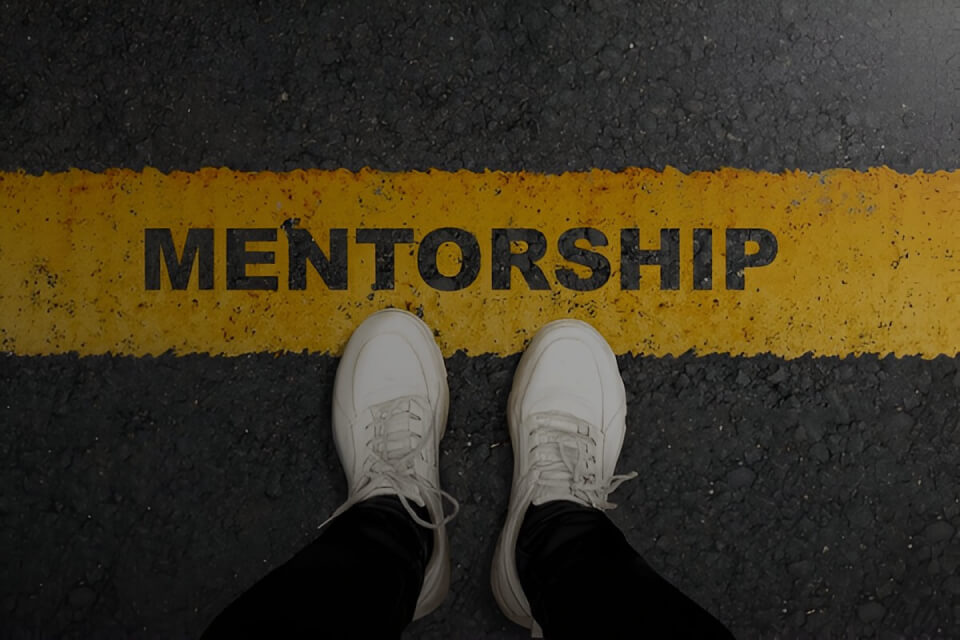Introduction
Leverage diaspora networks for funding is an idea that every young African entrepreneur should know about. Around the world, millions of Africans living abroad are using their skills, money, and experience to help businesses back home. These networks are powerful because they offer both funding and mentorship.
By connecting with this global family, you can get not only money but also advice, training, and guidance to grow your business faster. This support matters a lot, especially since many African entrepreneurs find it hard to raise funds locally. So, how can you truly benefit from diaspora networks to move your business forward? Let’s find out.
Understanding the Role of the African Diaspora in Business Growth
The African diaspora plays a big part in supporting business growth across the continent. Many Africans abroad have learned from international markets and now want to share their knowledge and resources. They help by offering mentorship, investment, and access to global markets, acting like bridges between Africa and the rest of the world.
Also, diaspora groups often host business events, create chances to partner, and help local startups improve in innovation and management. By joining these networks, you can meet investors, gain useful advice, and build strong business relationships. This not only helps your startup grow but also makes African economies stronger and more sustainable.
The Power of Diaspora Networks
Diaspora networks have great power in helping Africa grow, especially for young entrepreneurs who want funding and mentorship. Africans living abroad — in Europe, America, or the Gulf — still feel deeply connected to their home countries. These strong connections create big chances for investment, learning, and business support.
Members of the African diaspora often have something special to offer: money, global experience, professional skills, and access to international markets. Many of them want to give back in more meaningful ways than just sending money to their families. They want to help Africa grow through business, innovation, and mentorship. When African startups connect with diaspora members, they can get both funds and valuable guidance to build stronger, smarter companies.
Overview of Diaspora Contributions to Africa’s Economy
Remittances, which is the money sent home by Africans abroad, have become a huge part of Africa’s economy. In 2024 alone, more than $95 billion came into African countries through remittances. This money supported over 200 million people across the continent, helping families, communities, and small businesses.
Most of the time, these funds are used for everyday needs like food, healthcare, and education. But they also do more than that. When people spend this money, local shops and services grow, creating jobs for others. Some families even use remittances as starting capital to open small businesses. This makes remittances a strong tool for boosting economic growth from the ground up.
Significance of the $95 Billion in Remittances
That $95 billion is not just money. It’s a powerful force for change. Unlike foreign aid or international loans, remittances are more stable and reach people faster. In many African countries, they form a large part of the national income and help to balance the economy.
For example, Nigeria receives more money from remittances than from some foreign investors. This flow of funds acts like a safety net, especially when the economy faces problems or when global aid slows down. However, there is a big opportunity here. Instead of using remittances only for spending, we can turn them into real investments that build businesses and create jobs.
Turning Remittances into Productive Investment Capital
To get the most benefit from diaspora networks, Africa needs to move from just receiving remittances to investing them wisely. This can be done by encouraging Africans abroad to invest in startups, buy company shares, or support local community projects.
Countries like the Philippines and Mexico already do this through diaspora bonds and investment platforms that make it easy for citizens abroad to invest back home. Many African nations are now following this path. Digital platforms are being created to help diaspora members fund African startups safely and transparently.
Also, diaspora mentorship is just as important as money. Africans abroad can guide entrepreneurs on how to build sustainable businesses, avoid common mistakes, and connect to global markets. Their experience can help young founders think bigger and plan better.
Engaging Diaspora Investors
The African diaspora is one of Africa’s strongest but least used resources for business growth. Many Africans living abroad have good jobs, strong networks, and a real love for their home countries. So, learning how to leverage diaspora networks for funding is very important for any entrepreneur who wants to grow a business successfully.
Identifying Potential Diaspora Investors and Networks
Finding diaspora investors needs a smart plan. You have to know where African professionals and business people live around the world. Most of them still have emotional and cultural connections to their home countries, which makes them great partners for investment.
To begin, entrepreneurs should look at major diaspora hubs like London, New York, Dubai, and Toronto. These cities have big African communities with many professional groups that connect successful diaspora members to businesses back home.
Also, the internet has made it easier to find and connect with diaspora investors. Platforms such as VC4Africa bring together over 10,000 members worldwide, helping entrepreneurs meet investors. Likewise, Afrikstart and Homestrings help gather diaspora funds for African projects.
Examples of Diaspora Investment Clubs and Associations
Many organisations show how to use diaspora networks for funding. For instance, the African Diaspora Network, created in 2010, links Africans around the world with business opportunities. The African Union’s African Diaspora Finance Corporation also helps connect all 55 African countries with global investors.
In addition, there are industry-based networks. The Arab Scientists and Technologists Abroad network joins professionals in the tech sector. Also, different national diaspora associations create investment clubs where members put money together to support businesses in their home countries.
Building Trust and Credibility with Diaspora Partners
Trust is the most important part of any diaspora investment. Entrepreneurs must show honesty, professionalism, and good management to attract investors.
Building credibility starts with proper records and legal documents. Diaspora investors usually ask for strong evidence before investing because they face extra risks since they live far away. Therefore, having audited financial statements, a clear business plan, and a legal structure helps build trust.
Technology also helps to grow trust. For example, Ovamba Solutions connects diaspora investors to small African businesses and reduces risk using secure digital systems. Moreover, blockchain and crowdfunding platforms increase transparency, which gives diaspora investors peace of mind.
Crafting a Strong Business Pitch for Diaspora Funding
When pitching to diaspora investors, it is important to understand their goals. Many of them want to make profit but also wish to help their home countries grow. So, your pitch should show both financial returns and social impact.
Explain how your business will create jobs, solve local problems, or support economic development. At the same time, talk about how you plan to manage currency risks, laws, and exit options, as these are common concerns.
Also, storytelling can make a big difference. Sharing your personal journey, your motivation, and how your business connects with your community can help create emotional bonds that support financial trust.
In conclusion, learning to leverage diaspora networks for funding takes time, patience, and respect for cultural values. However, the rewards are worth it. Diaspora investors not only provide money but also bring valuable knowledge, mentorship, and international connections that can help African businesses grow stronger and last longer.

Leveraging Mentorship from the Diaspora
Connecting with Africans living abroad is one of the smartest ways to get support for startups in Africa. Today, over 170 million Africans live in other countries and send billions home every year. But beyond the money, they also have valuable knowledge, skills, and global experience that can help young entrepreneurs grow. To truly leverage diaspora networks for funding, African founders must also learn from mentors in the diaspora. Here’s how to make the most of these amazing opportunities.
Finding Mentors in Global Professional Communities
First of all, young entrepreneurs need to actively search for mentors in global communities. There are platforms like Movemback and Bantaba where African startups can meet diaspora mentors, investors, and advisors.
At online events or symposiums, don’t be shy – introduce yourself, talk about your business goals, and ask for advice. Many accelerators that focus on Africans abroad also match experts with startups for short mentorship or consulting sessions. These connections help founders gain insights from people who already understand global business standards.
When reaching out, always be respectful and specific. Look for professionals whose skills match what you need, like marketing, finance, or product development. The African Diaspora Network hosts events such as the African Diaspora Investment Symposium, where entrepreneurs can meet mentors and investors face-to-face. With the right approach, you can open doors to partnerships, funding, and long-term mentorship.
Creating Two-Way Value: Learning and Sharing Expertise
Mentorship should never be one-sided. While it is great to learn from experienced mentors abroad, it’s also important to share what you know about local markets. True mentorship works best when both sides learn from each other. Always explain what makes your startup special, describe your customers, and talk about the challenges you face.
For example, Movemback’s Knowledge Exchange connects diaspora experts with local organisations for short learning sessions. This helps both sides grow. Also, make sure to give regular updates about your progress and success stories. That way, your mentor feels involved and appreciated. Being open to feedback and ready to adapt makes mentorship stronger and more valuable for everyone.
Using Virtual Platforms for Ongoing Mentorship
Thankfully, mentorship no longer needs to happen in person. African entrepreneurs can now connect with mentors abroad using virtual tools like Zoom, Google Meet, WhatsApp, or even special platforms such as Bantaba and Afropolitan. These tools make it easy to schedule regular sessions, join group discussions, and share business ideas across countries and time zones.
Tools for Communication and Collaboration
To stay organised, use platforms like:
- Zoom or Google Meet for video calls
- Slack or Microsoft Teams for chatting and sharing files
- WhatsApp for quick updates
- Miro or Trello for planning and tracking goals
- Google Drive or Dropbox for saving and sharing documents
These tools help break distance barriers and keep mentorship alive, active, and productive.
Structuring Co-Investment Opportunities
Knowing how to leverage diaspora networks for funding means working with Africans who live abroad to raise money and support local businesses. There are over 170 million Africans living in the diaspora who send remittances to family, many of them are using their money, skills, and connections to help fund new ideas, start-ups, and community projects. To make this work well, entrepreneurs must learn how to structure co-investment properly, so that everyone knows their role and what to expect.
Setting Up Clear Investment Terms
When entrepreneurs and diaspora investors work together, clear investment terms are very important. These terms help to build trust and keep everyone transparent. Both sides need to agree on what kind of investment it will be – is it a grant, equity, or a loan that can later become shares (convertible note)? For example, the African Diaspora Innovation Fund (AfDIF) allows all kinds of contributors, but those who invest more can have more say in decisions.
Every deal should have a written contract. This contract should show how much each person is investing, for how long, what business goals (milestones) must be reached, and how profits or control will be shared. When everything is written clearly, it prevents arguments later. Also, when you move from informal remittance to structured investment, you attract bigger investors and build stronger credibility. This is especially useful when many people from the diaspora are involved in one business.
Aligning Financial Goals and Exit Plans
Before you use diaspora networks for funding, it’s wise for all co-investors to talk about their goals. Some may want to make profit fast, while others may care more about social impact—like creating jobs or improving education and healthcare. Many diaspora investments try to balance both money and impact.
Partners should also agree on how and when they want to get their returns. For instance, some investors may want to exit after three years, while others may prefer to keep reinvesting their profits. A clear exit plan helps to avoid confusion later. It should state who gets paid, when, and how much. Regular meetings and updates keep investors encouraged and help build long-term trust. Remember, success is not always about quick money; sometimes, it’s about making lasting change in local communities.
Legal and Regulatory Considerations for Cross-Border Funding
Cross-border investments come with special rules and risks. When you leverage diaspora networks for funding, always check the legal requirements in both countries — where the investor lives and where the business operates. These include tax laws, anti-money laundering rules, and business registration steps. Some African governments make it easier for diaspora investors through incentives or special programs, while others still have slow processes.
Having a solid compliance plan protects everyone’s money. For example, organisations like AFFORD in West Africa provide training, legal advice, and mentoring for diaspora investors and entrepreneurs. Getting support from experienced lawyers or business experts saves time and prevents legal issues later.

Building Long-Term Relationships
Getting help from the diaspora is not just about collecting money; it’s about connecting with people who share your dreams, have valuable experience, and can open doors to new opportunities. Whether you are starting a business or growing one, staying close to diaspora supporters gives you more than just financial help – it gives you guidance, trust, and lifelong partners.
Maintaining Transparent Communication
One of the most important steps is keeping communication open and honest. From your first meeting to every follow-up, always be clear about your plans, progress, and even your problems. Diaspora investors and mentors respect honesty because it builds trust. If you only share good news and hide challenges, they may lose confidence in you later.
Also, clear communication helps avoid misunderstandings. Whether you use social media messages, online meetings, or newsletters, always keep your supporters updated about your business and what you need next. When you ask for advice, explain your challenges directly. This shows that you are serious, focused, and reliable.
As you move from open communication to regular updates, you keep people interested for a long time. Investors who trust you are more likely to invest again, share your work with others, or connect you with bigger opportunities. If anything changes, tell them quickly — this keeps your relationship healthy and professional.
Regular Reporting and Impact Updates
Next, regular reporting is key when you want to leverage diaspora networks for funding. Investors and mentors want to see your progress before they decide to support you again. You can send short monthly or quarterly reports that show your results, achievements, and future plans.
Keep your reports simple and clear. Diaspora supporters often live in different countries or time zones, so make your updates easy to read. You can include short stories, charts, or pictures that show your impact. Use linking words like also, then, and finally to guide readers smoothly.
However, don’t just talk about money. Share how your business helps people — maybe you created jobs, supported local suppliers, or improved your community. For example, platforms like Bantaba, Daba, and the African Diaspora Innovation Fund encourage businesses to share real-life impact stories, not only profits. Showing these results makes diaspora investors more confident and likely to continue supporting you.
Celebrating Success and Acknowledging Contributors
Lastly, always celebrate achievements and appreciate the people who helped you. When you reach milestones — like launching a product, signing big deals, or entering new markets — share the news and say thank you. You don’t have to wait for perfect results. Even small wins deserve recognition.
You can send thank-you messages, give shout-outs on social media, or host small online or in-person appreciation events. Recognising mentors and investors makes them feel valued and motivates them to keep helping. When they feel appreciated, they will likely reinvest or introduce you to more useful contacts.
As you move from celebration to retention, you create a positive cycle. People who feel connected to your success will support you in hard times, give fresh ideas, and open more doors. By celebrating together, you build loyalty and ensure continuous growth.
Challenges and Practical Solutions
Leveraging diaspora networks for funding and mentorship is one smart way for African startups and businesses to grow and reach global investors. But like every big dream, it comes with some challenges. With good communication, proper planning, and tracking progress, these challenges can be solved.
Overcoming Trust Barriers and Misinformation
One major problem is trust. Many diaspora investors live far away and may not be sure if their money will be used properly or if the team on ground is reliable. Also, misinformation can make things worse. Some founders may talk too big about their business growth or hide the risks, which scares investors.
To solve this, founders should be honest and communicate openly. They can send regular updates, share financial reports, and use known crowdfunding platforms like Bantaba and Daba to show seriousness. Diaspora-focused events and investment forums also help people meet face-to-face or online to clear doubts. When entrepreneurs work with experienced investors, they also learn how to be more transparent, which helps build long-term trust.
Managing Currency and Policy Risks
Another big challenge in leveraging diaspora networks for funding is currency and policy risk. In many African countries, the value of money changes often, and government rules can change suddenly. This makes investors afraid of losing money or facing legal issues.
The best way to handle this is by using digital funding platforms that accept different currencies and convert them automatically. Founders should also work with trusted banks or fintech companies that offer currency protection (known as hedging). It’s important for entrepreneurs to learn about local laws, update investors when new rules come, and set clear agreements for refunding or managing funds if problems happen. Working with diaspora platforms that follow compliance rules also gives investors peace of mind and encourages continuous support.
Ensuring Accountability and Performance Tracking
Every investor wants to see that their money is making a real difference. That’s why accountability and performance tracking are so important. Startups should use systems that show their growth and how they are using funds. Tools like online dashboards and impact metrics (for example, job creation, customer reach, or sales growth) can help show progress.
Mentorship from diaspora experts can guide young businesses on how to track and report performance. Entrepreneurs can also invite investors to attend meetings online, share monthly reports, and answer questions quickly. With this level of openness, trust becomes stronger, and more people will want to invest.

Frequently Asked Questions (FAQs)
1. What does it mean to leverage diaspora networks for funding?
It simply means using the support and connections of Africans living abroad to help local startups in Africa.
2. How can African startups attract diaspora investors?
Startups can attract diaspora investors by showing that their business idea is strong and has real potential.
3. What role does mentorship play when engaging diaspora networks?
Mentorship is very important. When experienced Africans abroad guide local entrepreneurs, they help them avoid common mistakes, improve leadership, and meet global business standards. This kind of support helps startups grow faster and smarter.
4. What are the main benefits of diaspora investment for African economies?
Diaspora investments bring more than money. They come with global knowledge, management experience, and access to bigger markets. These investments help create jobs and make African economies stronger and more sustainable.
5. How can founders build relationships with diaspora investors for the long term?
Founders can build lasting relationships by being transparent, giving regular updates, and showing progress. Attending diaspora business events and joining mentoring programmes also help build trust and long-term partnerships.
Conclusion
Learning to use diaspora networks for funding opens many doors for African entrepreneurs. It connects them to money, mentorship, and skills from Africans who live abroad but still care about their home continent. With different platforms, accelerators, and support programmes available, young founders can now grow faster and smarter.
More importantly, diaspora investors are helping to build stronger African economies by bringing in fresh capital and world-class experience. So, whether you are starting small or already growing, remember that leveraging diaspora networks is not only about money—it’s about building lasting connections that can move Africa forward. Together, we can create



